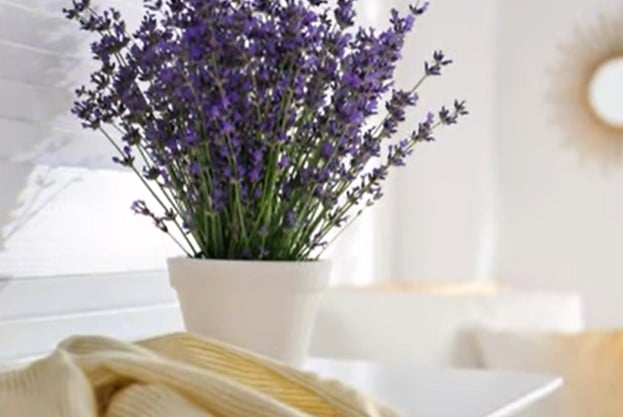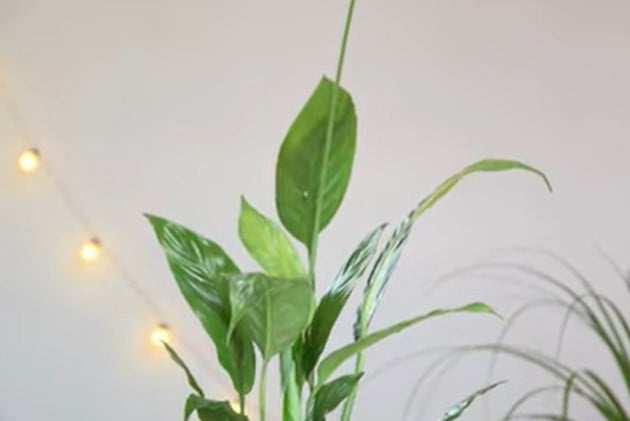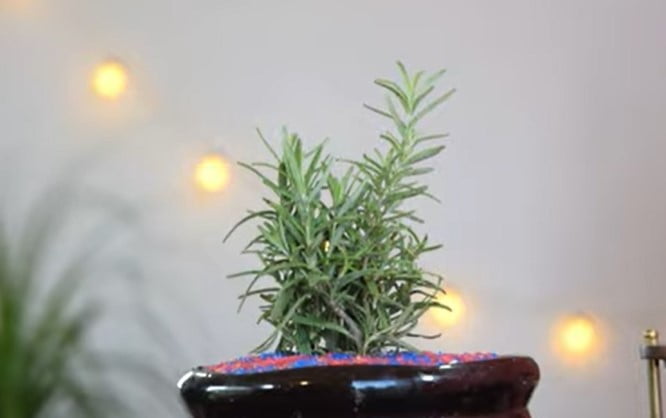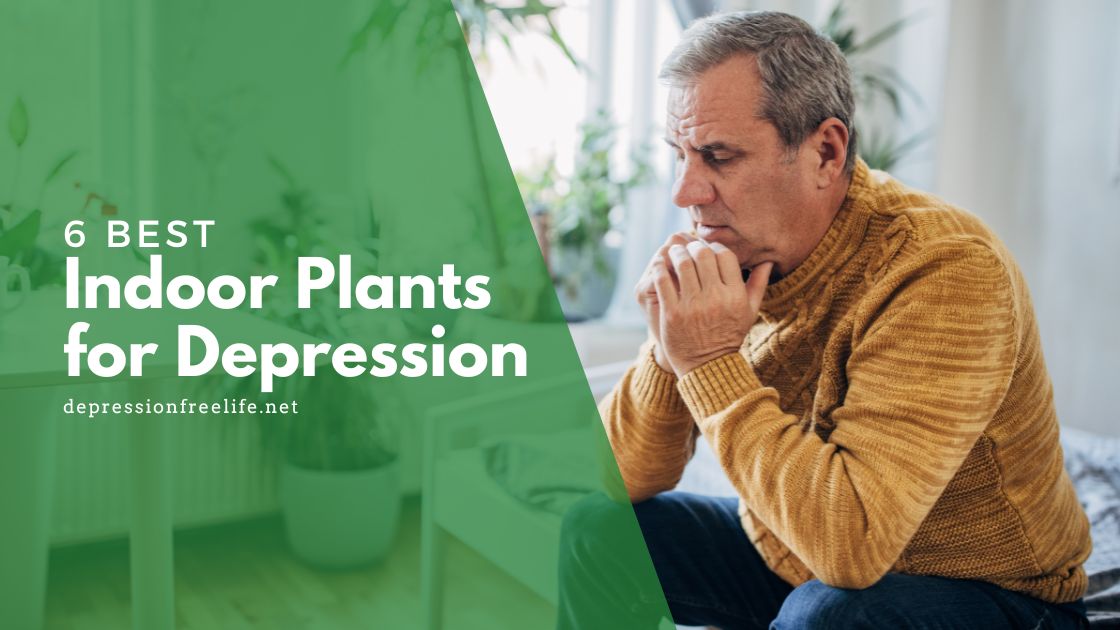In search of the best indoor plants for depression? Depression is a serious mental health condition that can have significant negative impacts on a person’s life. But there are ways to help manage depression, including the use of indoor plants. Studies have found that connecting with nature and being around greenery can reduce symptoms of depression, such as anxiety and stress.
In this article, we’ll explore some of the best indoor plants for depression treatment. We’ll look at what makes certain plants especially beneficial in reducing depressive symptoms, so you can make an informed decision about which plant might be right for you or your loved one struggling with depression.
Best Indoor Plants for Depression Quick guide
These are just some of the best indoor plants for depression. For more details on each and what benefits they offer, continue reading below.
- Aloe Vera
- Lavender
- Peace Lily
- English Ivy
- Jade Plant
- Rosemary
Best Indoor Plants for Depression
No matter which of these Best Indoor Plants for Depression you pick; remember to find a spot with bright, indirect light and adequate air circulation; this will ensure your plants stay healthy and can do their part in helping you cope with depression!
Aloe Vera
Known as the “plant of immortality”, aloe vera is a great plant for reducing feelings of depression due to its ability to cleanse and purify the air, boost energy levels, reduce stress, and promote better sleep.
The plant known as Aloe barbadensis miller, or Aloe vera, can purify the air by removing harmful irritants that may cause respiratory infections and increase feelings of anxiety and stress. This type of plant is easy to take care of and can survive in harsh conditions.
Lavender

Lavender has long been known for its calming effects on both the body and mind due to its strong scent that helps soothe anxiety and improve mood. It also acts as an anti-depressant since it absorbs negative emotions from its environment.
The lavender plant has calming properties similar to those found in various products such as pillow sprays and bubble baths. Its fragrance is believed to reduce stress, anxiety, and mild pain.
Peace Lily

The peace lily is one of the most popular indoor plants because it’s very easy to care for and can help clear airborne toxins while boosting your mental health through improved airflow in your home or workplace. Its vibrant white flowers symbolize purity, hope, and innocence — all key components in overcoming depression naturally!
According to NASA, Peace Lilies are highly efficient at removing harmful toxins and pollutants from the air. Having one in your home can diminish the presence of toxic household chemicals and eradicate mould spores, which may result in eye, throat, and skin irritation.
English Ivy
English Ivy – This classic houseplant helps reduce symptoms of depression by filtering out toxic gases like formaldehyde which are found in everyday items such as carpets or furniture fabrics; this makes breathing easier while creating a peaceful atmosphere which leads to lower stress levels overall! Plus, English ivy is believed to have healing properties that can bring emotional balance.
English Ivy has the ability to purify the air in your home by removing harmful toxins. It is said to be especially helpful for people with allergies like asthma. In addition, its air-purifying qualities can promote better sleep at night.
If you enjoy the appearance of vines and leaves overflowing from hanging baskets, then this particular houseplant is an excellent choice.
The English ivy not only looks beautiful but also helps to purify the air, removing up to 94% of mould in just 12 hours. Exposure to mould can cause various adverse health effects, such as insomnia, irritability, and depression.
Jade Plant
Jade Plant – Said to bring luck and prosperity, the jade plant is also an excellent choice for those suffering from depression. It helps promote positive energy in the home while providing a sense of peace and security; its vibrant green leaves are said to symbolize growth, stability, and renewal — all helpful tools when trying to overcome depression naturally.
The plant known as Crassula Ovata, or Jade, has become a popular houseplant because it requires little upkeep and offers health benefits.
It can remove pollutants from the air that come from things like paint and cleaning products. These pollutants contain chemicals that can cause stress and make you feel unwell.
Rosemary

This plant native to the Mediterranean has more uses than just a culinary herb. It is a popular indoor plant with a scent that can boost cognitive function, decrease anxiety, and lower cortisol levels. In addition to stress relief, this plant has health benefits that include improving productivity and the quality of sleep.
- Rosemary, also known as Salvia rosmarinus, can positively affect your mood, focus, stress, and productivity according to research. You can grow it in pots and use it to season stews and soups as well as elevate your mood.
- We all experience stress, which can negatively affect our physical and mental health. Rosemary essential oil is commonly used in aromatherapy to promote relaxation and improve mood.
- Additionally, it has been shown to have anti-depressant properties that can alleviate symptoms of chronic anxiety and depression. Rosemary extract has also been found to reduce levels of cortisol, the hormone associated with stress.
Common Questions About Best Indoor Plants for Depression
Do plants fight depression?
- Interacting with indoor or outdoor plants can help alleviate symptoms of depression and reduce feelings of anxiety. This is due to a 2007 study that found a bacterium called Mycobacterium vaccae in plant soil, which triggers the release of serotonin and lifts mood.
- During the winter months, approximately 20% of Americans may experience seasonal depression or winter blues due to shorter days and weaker sunlight. Adding houseplants to your living space and workspace may alleviate stress, promote higher oxygen levels, and enhance your mood.
What is the best house plant for daily appreciation?
According to research conducted at the Department of Basic eucalyptus oil has been shown to lower anxiety levels in a group of people. To experience its aroma in a room, it is recommended to grow eucalyptus indoors and enhance the scent by crushing its leaves.
How can plants help with depression?
Indoor plants that can reduce cortisol levels are good for our health, according to a study published in the Journal of Physiological Anthropology.
These stress-relieving plants offer numerous benefits including lowering blood pressure, boosting mental alertness, improving well-being and productivity, reducing anxiety and mild depression, and enhancing perception and self-satisfaction.
Are the best indoor plants for depression worth it?
Indoor plants are an easy way to reduce stress at work or home and break the cycle of growing concerns about mental health, which is now on par with or even more important than physical well-being.
Video 11 Houseplants to Improve Your Mental Health (According to Science)
Want to know more about the best indoor plants for depression? In this video, you’ll learn about eleven houseplants that can help improve your mental health.
Final Thoughts
The best indoor plants for depression can help to improve the mood of those suffering from depression. Not only do they bring a sense of life and beauty into any home, but their calming presence has been proven to reduce anxiety levels, provide comfort in difficult times, and increase overall feelings of well-being.
Whether you’re looking for an attractive piece of decor or something that will naturally lift your spirits during tough moments, adding the best indoor plants for depression to your living space is sure to be beneficial. With so many varieties available on the market today, there are plenty of options for finding just what you need!



